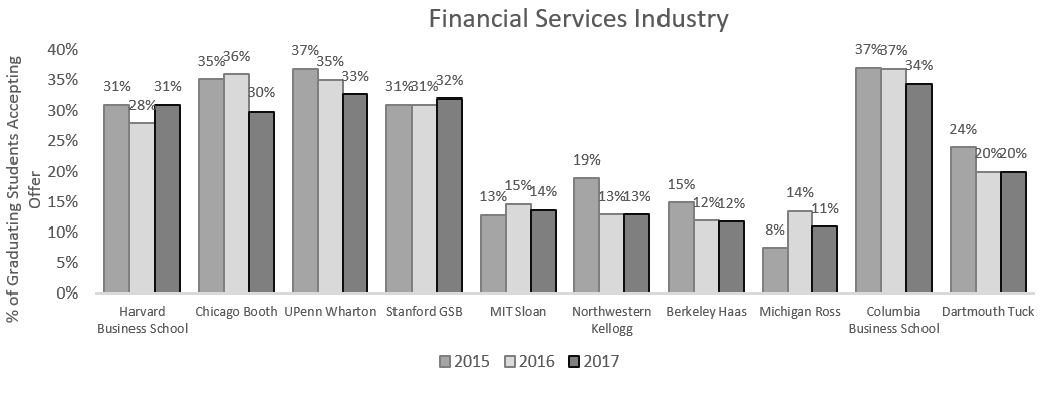The Wall Street Journal recently reported that the big three consulting firms—McKinsey, Bain, and BCG—have delayed start dates for MBA hires. The firms, together nicknamed MBB, are perennially among the top employers of MBA graduates, as is the broader consulting industry.
McKinsey plans to onboard MBA hires in a staged manner from post-graduation through February 2024. Similarly, a BCG spokesperson confirmed that they too plan to stagger start dates for MBA hires from late 2023 to January 2024.
Bain, taking a different tact, offered its MBA recruits compensation to accept an April 2024 start date. For those impacted, Bain’s financial incentives include $40,000 to work for a nonprofit, $30,000 to learn a new language or take on another academic endeavor, and even $20,000 to become a yoga instructor or take a safari.
According to the WSJ, the Big Three are not alone in adjusting their hiring practices this year. The article highlighted a recent analysis by William Blair & Co., showing that job postings at EY, Deloitte, KPMG, and PWC have declined by 62 percent year-over-year.
Poets & Quants reached out to MBA career center professionals for additional insight into how the delays are impacting students. Most maintained their optimism.
“We have yet to see (knock on wood) any offers—consulting or otherwise—get rescinded. What is impacting our Class of 2023 MBA graduates are start dates being pushed back. Most firms employing Scheller MBAs have offered a range of dates that are definitely later than in prior years. And at least one firm has offered some financial incentive to students who accept later dates. That is about the extent of it at this point,” Dave Deiters, Associate Dean of MBA Programs at Georgia Tech’s Scheller MBA Career Center, said.
Jeff McNish, Assistant Dean of the Career Center at University of Virginia’s Darden, also describes the impact as relatively minimal. “To date, we have not been made aware of any frozen or rescinded offers for consulting in the class of 2023. We have had one company ask a small set of students going to a specific city to consider changing the start date to later this year or early next year. It has impacted fewer than six of our students. This is the extent of what we know at present,” he said.
One unnamed career center director at a top-20 MBA program hypothesized to P&Q that the delayed start dates are simply “a reset to previous years.” They explained that in hot economic times, consulting firms ask MBA hires to start work soon after graduation, but that in slower economic periods it is not atypical for firms to opt for later start dates.





